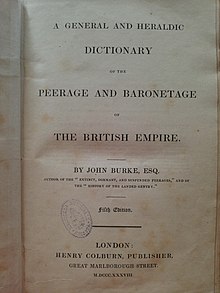
Sir Rupert Iain Kay Moncreiffe of that Ilk, 11th Baronet,, Chief of Clan Moncreiffe, was a British Officer of Arms, historian and genealogist.
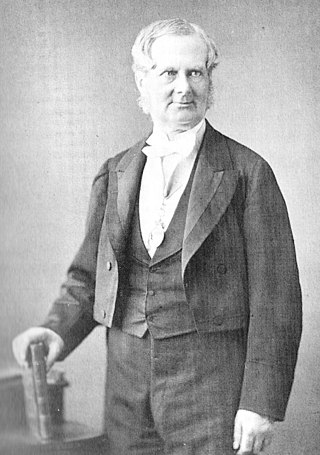
Sir John Bernard Burke, was a British genealogist and Ulster King of Arms, who helped publish Burke's Peerage.
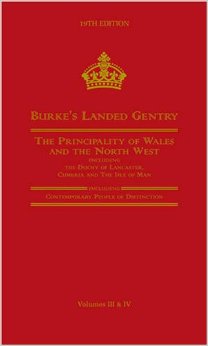
Burke's Landed Gentry is a reference work listing families in Great Britain and Ireland who have owned rural estates of some size. The work has been in existence from the first half of the 19th century, and was founded by John Burke. He and successors from the Burke family, and others since, have written in it on genealogy and heraldry relating to gentry families.
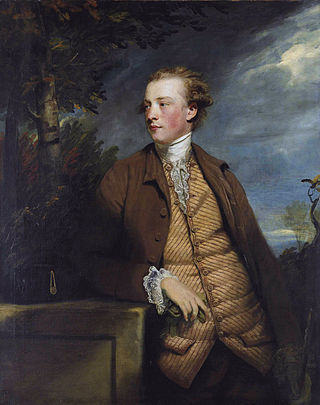
Denis Daly of Carrownakelly and Dunsandle Castle, Loughrea, County Galway, was an Irish landowner and politician.
Serena Mary Strathearn Gordon is an English actress. Her roles include Amanda Prosser in police drama The Bill and MI6 evaluator Caroline in 1995 James Bond film GoldenEye.
The High Sheriff of Tipperary was the Sovereign's judicial representative in County Tipperary. Initially an office for a lifetime, assigned by the Sovereign, the High Sheriff became annually appointed from the Provisions of Oxford in 1258. Besides his judicial importance, he had ceremonial and administrative functions and executed High Court Writs.
John Burke was an Irish genealogist, and the original publisher of Burke's Peerage. He was the father of Sir Bernard Burke, a British officer of arms and genealogist.
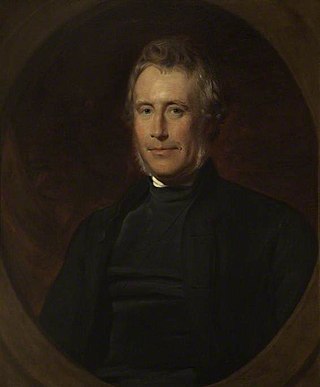
Robert John Eden, 3rd Baron Auckland, styled The Honourable Robert Eden from birth until 1849, was a British clergyman. He was Bishop of Sodor and Man from 1847 to 1854 and Bishop of Bath and Wells from 1854 to 1869.
Hugh John Massingberd, originally Hugh John Montgomery and known from 1963 to 1992 as Hugh Montgomery-Massingberd, was an English journalist and genealogist. He was chief editor of Burke's Peerage/Burke's Landed Gentry from 1971 to 1983.
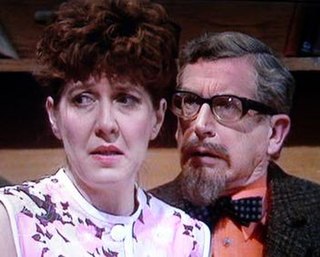
John David Blake Butler was an English actor best known for his role as the lecherous chief librarian Mr. Wainwright during the first and third series of Last of the Summer Wine in 1973 and 1976 respectively.
The Hon. William Stuart Knox DL JP, was an Irish politician.
Richard Boyle Townsend was an Irish politician.
Sir James Macdonald, 2nd Baronet, GCMG was a British politician. He sat in the House of Commons between 1805 and 1832.
Roger Soame Jenyns, who usually wrote his name simply as Soame Jenyns was a British art historian, known as an expert on East Asian ceramics.
Mary Elizabeth Morgan-Grenville, 11th Lady Kinloss was a British peeress.
Edmund Roberts Larken (1809–1895) was an English cleric and Christian socialist, a patron of radical causes and author on social matters. Along with other unconventional views, he was noted as possibly the first parish priest of his time to wear a beard.
John Robert Monsell was an Irish illustrator.
Alfred Nathaniel Holden Curzon, 4th Baron Scarsdale,, was a British aristocrat and clergyman. He was the father of George Curzon, 1st Marquess Curzon of Kedleston, who was the Conservative Viceroy of India and British Foreign Secretary.
Mary Frances Parker, Countess of Macclesfield, formerly Mary Drake, was the wife of George Parker, 4th Earl of Macclesfield.
The Bundfamily of Wick Episcopi owned estates in Worcestershire since the fifteenth century; from this armigerous landed gentry family came several individuals of note in the fields of law, local government and literature.
